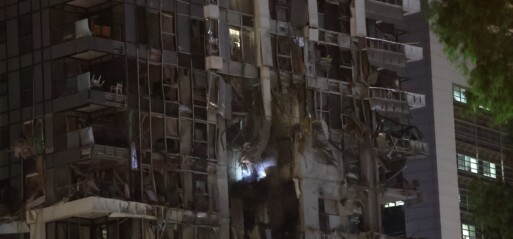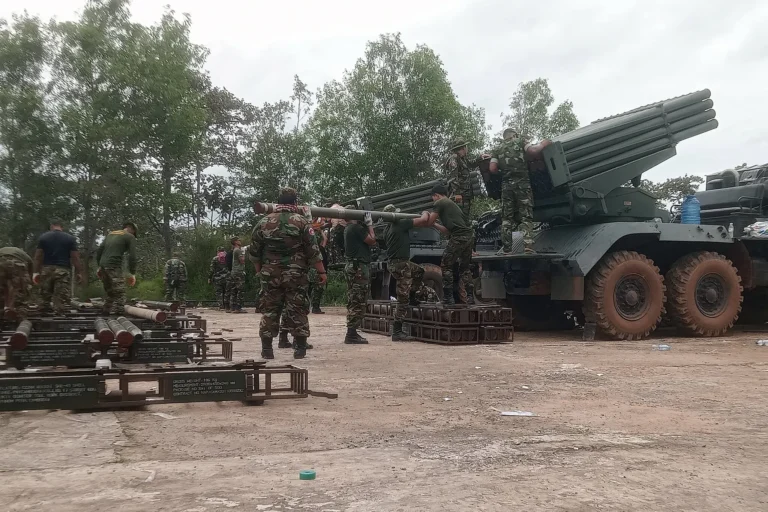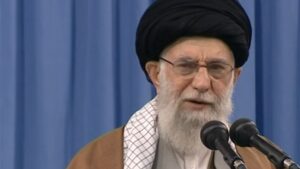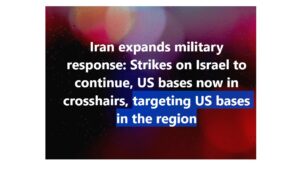Iran unleashed a major missile barrage against Israel late Friday in a sharp escalation of regional hostilities, with the US confirming its role in helping intercept the projectiles. A US official told Anadolu News Agency, “We are supporting Israel in neutralizing incoming missile threats.”
Dubbed Operation True Promise III, Tehran’s strike targeted multiple Israeli sites, leaving at least 40 injured—two in critical condition—according to Haaretz. Israeli military spokesperson Avichay Adraee stated Iran launched “fewer than 100 missiles,” most of which were thwarted by Israel’s Iron Dome or failed to reach their destinations.
The attack marked Iran’s forceful response to Israeli airstrikes earlier this week that hit nuclear and missile facilities in Tehran and elsewhere, killing high-ranking Iranian military figures and scientists. Iran’s Tasnim news agency claimed its forces downed two Israeli jets and captured a female pilot, while an Israeli drone was reportedly destroyed over Qom. Israel dismissed these assertions as “fabrications.”
International Legal Backlash
The legality of Israel’s preemptive strikes has drawn fierce criticism from global legal experts. Former CIA analyst Paul R. Pillar labeled the attacks “blatant aggression,” while Russia’s Foreign Ministry denounced them as “unprovoked” breaches of international law.
UN legal scholar Ben Saul argued Israel’s actions violated the UN Charter, warning they could amount to “the crime of aggression.” The International Commission of Jurists echoed this, calling the strikes “grave violations” that risk further destabilizing the Middle East. Author Moustafa Bayoumi added that the operations were “unauthorized and illegal.”
Legal experts emphasized that military action without UN Security Council approval is only justified against an imminent threat—a standard many argue Israel failed to meet. The Red Cross reiterated the necessity of proportionality and civilian protection in conflict.
Diplomatic Reactions
French President Emmanuel Macron pledged defensive support for Israel but ruled out offensive involvement, urging restraint to avoid wider conflict. He stressed the urgency of reviving nuclear talks with Iran, citing its program as a global threat.
UK Prime Minister Keir Starmer, in talks with Israeli leader Benjamin Netanyahu, affirmed Israel’s right to self-defense but pressed for de-escalation and diplomacy.
Casualties and Fallout
Iran’s Atomic Energy Organization reported localized nuclear contamination at Natanz but assured no broader risk. Iranian media, however, claimed Israeli strikes killed 104 and wounded 376, mostly civilians.
US President Donald Trump called on Tehran to halt attacks and resume nuclear negotiations. Iran’s Supreme Leader Ayatollah Ali Khamenei vowed “severe punishment,” branding the killings of Iranian personnel as “criminal.”
[Photo: Aftermath of an Iranian missile strike near Israel’s Defense Ministry in Tel Aviv, June 13, 2025. Credit: Saeed Qaq/AA]








